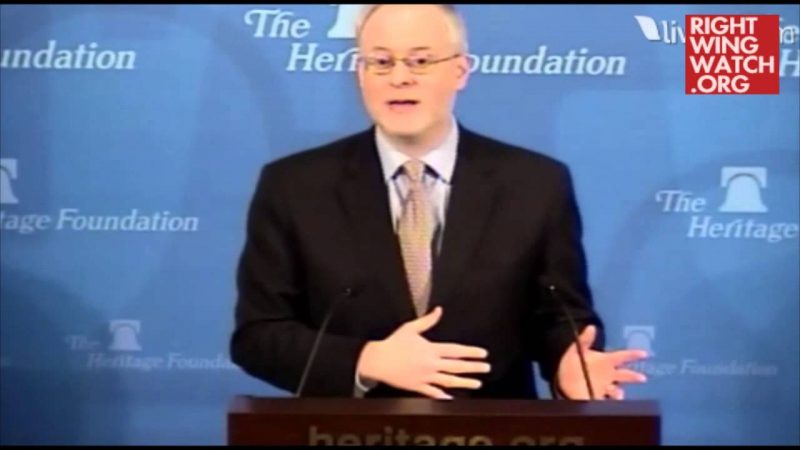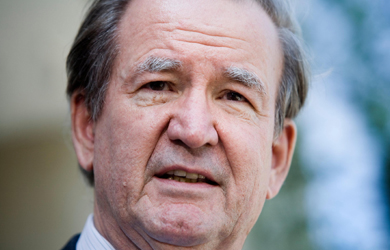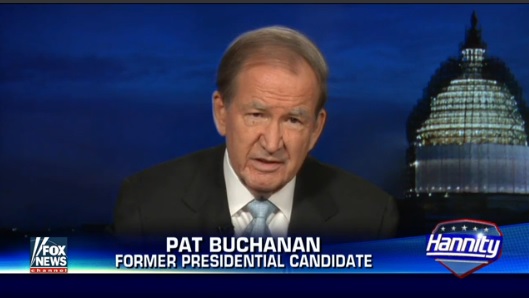Pat Buchanan is the latest right-wing figure to jump to the defense of Jason Richwine, the advocate of racist pseudo-science who was booted from the Heritage Foundation last week.
In his latest syndicated column, Buchanan argues that Hispanic Americans exhibit “underclass behavior” and warns of the dangers of “racially mixed communities.”
“With the immigration bill granting amnesty to 12 million illegals, an open door to their dependents and a million new immigrants each year, almost all from the Third World, America in 2040 is going to look like Los Angeles today,” he writes.
Buchanan also attempts to back up Richwine’s theories about racial differences in IQ, pointing to global rankings among “Hispanic nations” in math, reading and science. He is forced to undercut his own theory, however, but leaving the most prosperous Spanish-speaking nation, Spain, out of his bogus statistics.
The 2009 Programme for International Student Assessment, PISA, which measures the academic ability of 15-year-olds worldwide, found the USA falling to 17th in reading, 23rd in science, 31st in math.
Yet, Spain aside, not one Hispanic nation, from which a plurality of our immigrants come, was among the top 40 in reading, science or math.
But these folks are going to come here and make us No. 1 again?
Is there greater “underclass behavior” among Hispanics?
The crime rate among Hispanics is about three times that of white Americans, while the Asian crime rate is about a third that of whites.
Among white folks, the recent illegitimacy rate was 28 percent; among Hispanics, 53 percent. According to one study a few years back, Hispanics were 19 times as likely as whites to join gangs.
What about Richwine’s point regarding “social trust”?
Six years ago, in “E Pluribus Unum: Diversity and Community in the 21st Century,” Robert Putnam, author of “Bowling Alone,” wrote that after 30,000 interviews he found that ethnic and racial diversity can be devastating to communities and destructive of community values.
In racially mixed communities, Putnam wrote, not only do people not trust strangers, they do not even trust their own kind.
“People living in ethnically diverse settings appear to ‘hunker down,’ that is, to pull in like a turtle … (to) withdraw even from close friends, to expect the worst from their community and its leaders, to volunteer less, give less to charity and work on community projects less often, to register to vote less, to agitate for social reform more but have less faith they can actually make a difference, and to huddle unhappily in front of the television.”
With the immigration bill granting amnesty to 12 million illegals, an open door to their dependents and a million new immigrants each year, almost all from the Third World, America in 2040 is going to look like Los Angeles today. Yet, it was in L.A. that Putnam found social capital at its most depleted and exhausted.
If Richwine is right, America in 2040 will be a country with whites and Asians dominating the professions, and 100 million Hispanics concentrated in semiskilled work and manual labor.
The issues Richwine raises go to the question of whether we shall survive as one nation and one people.






